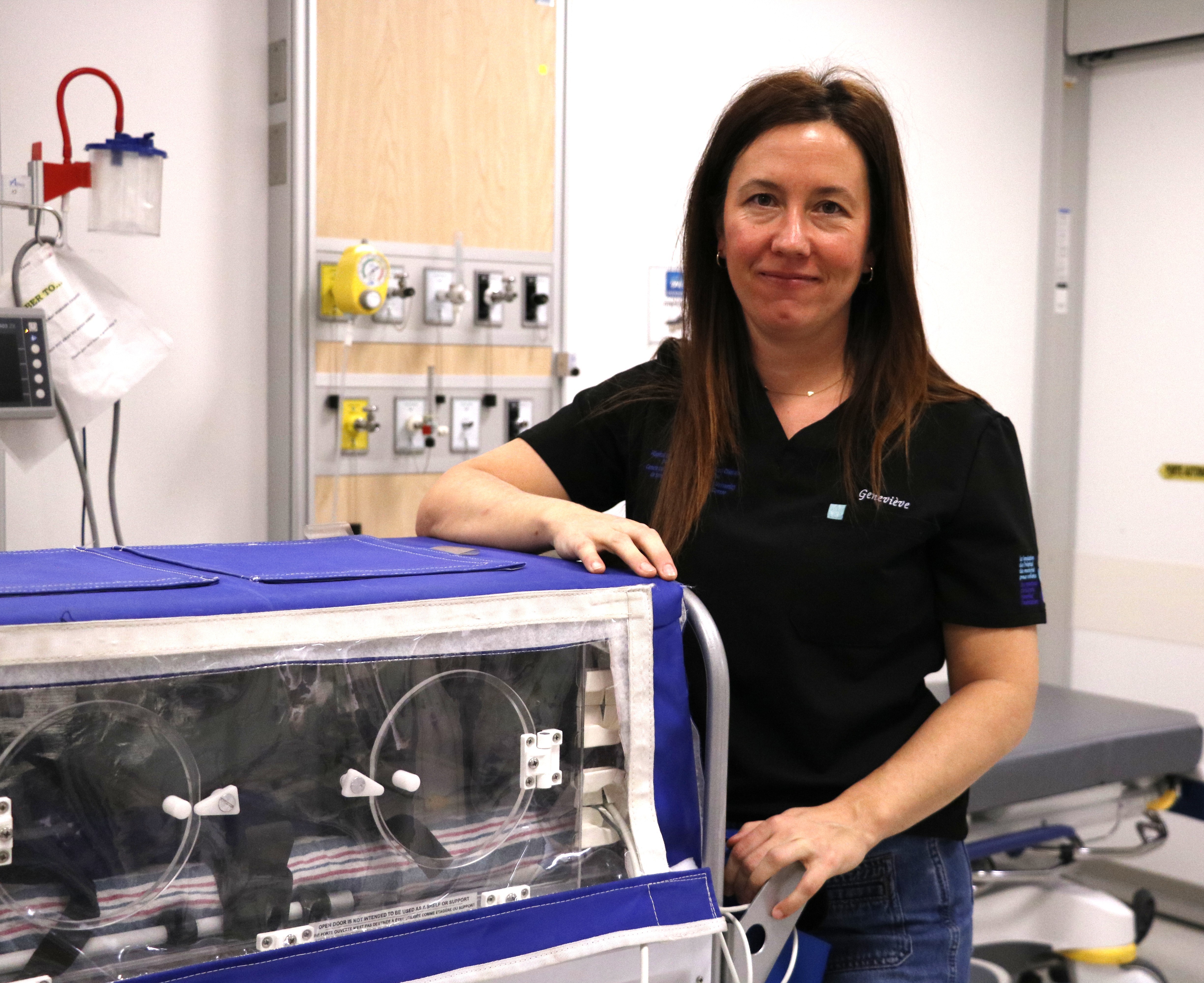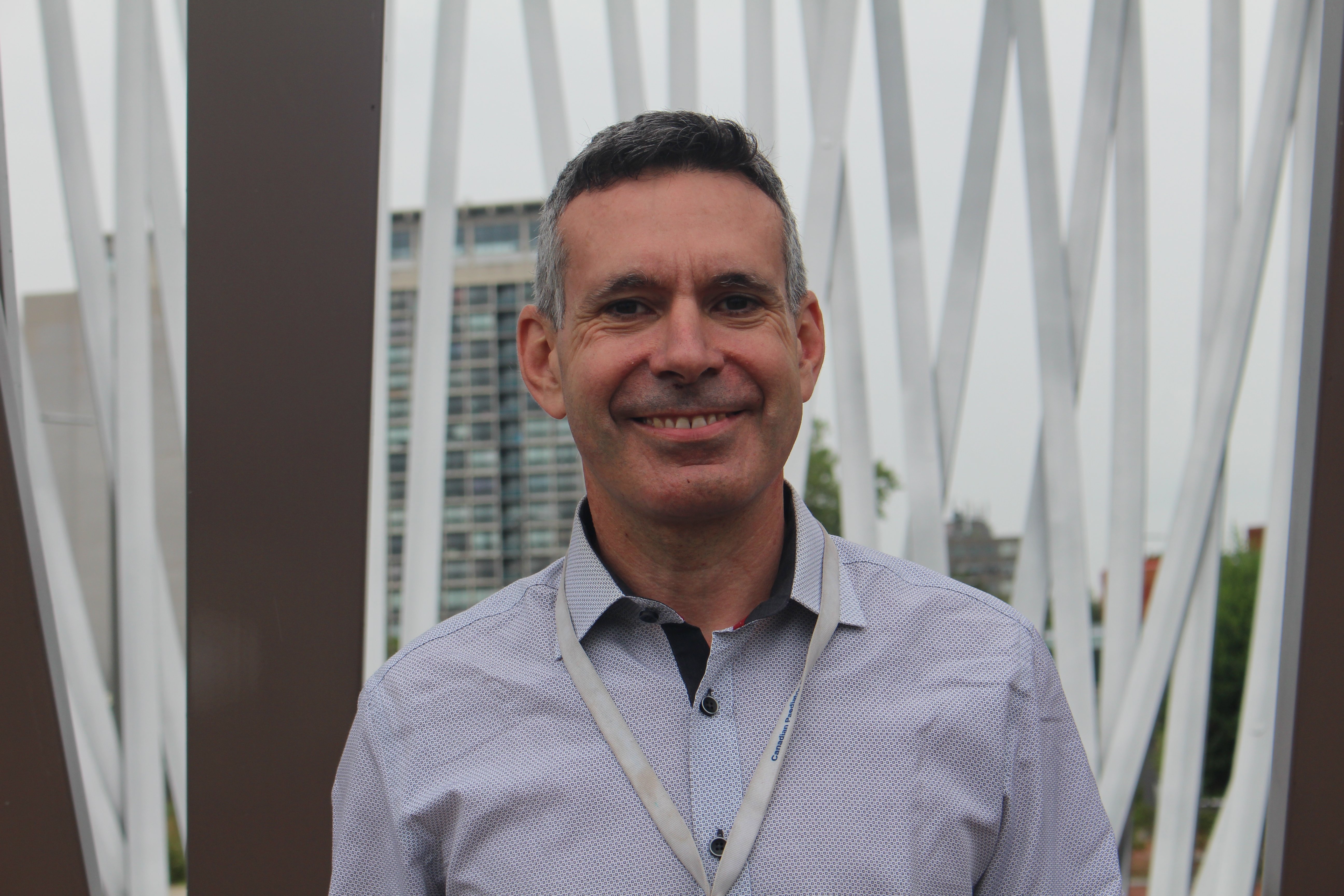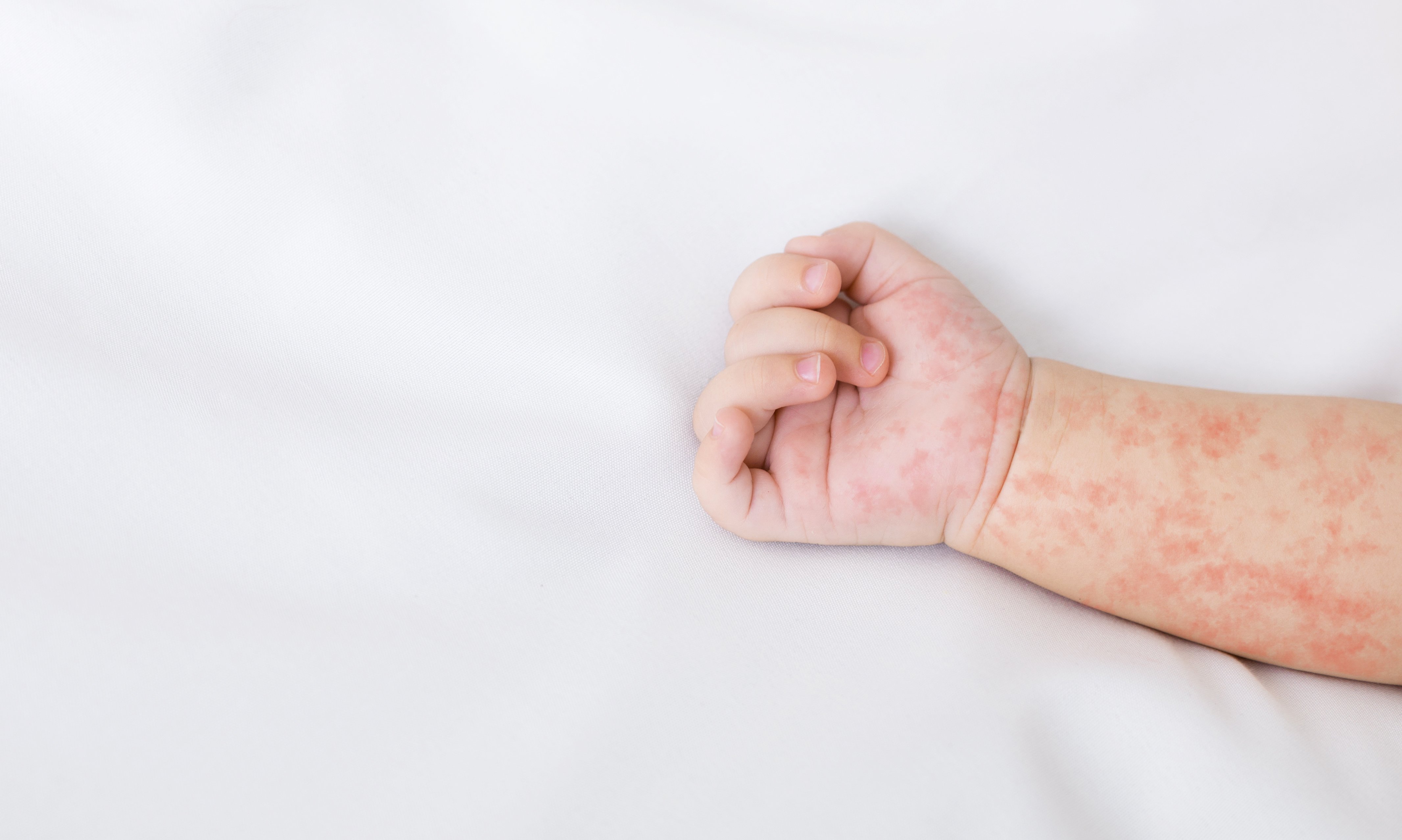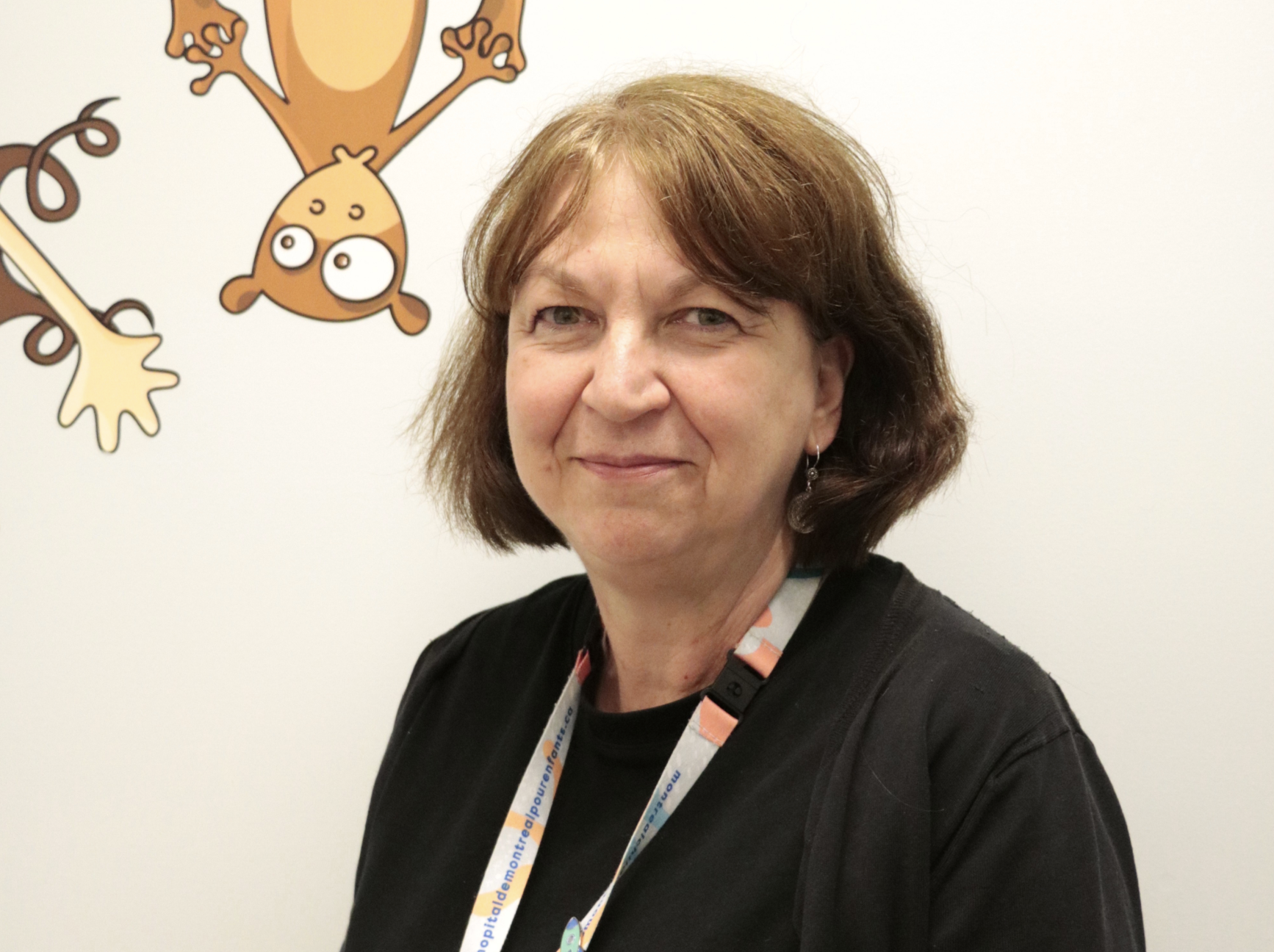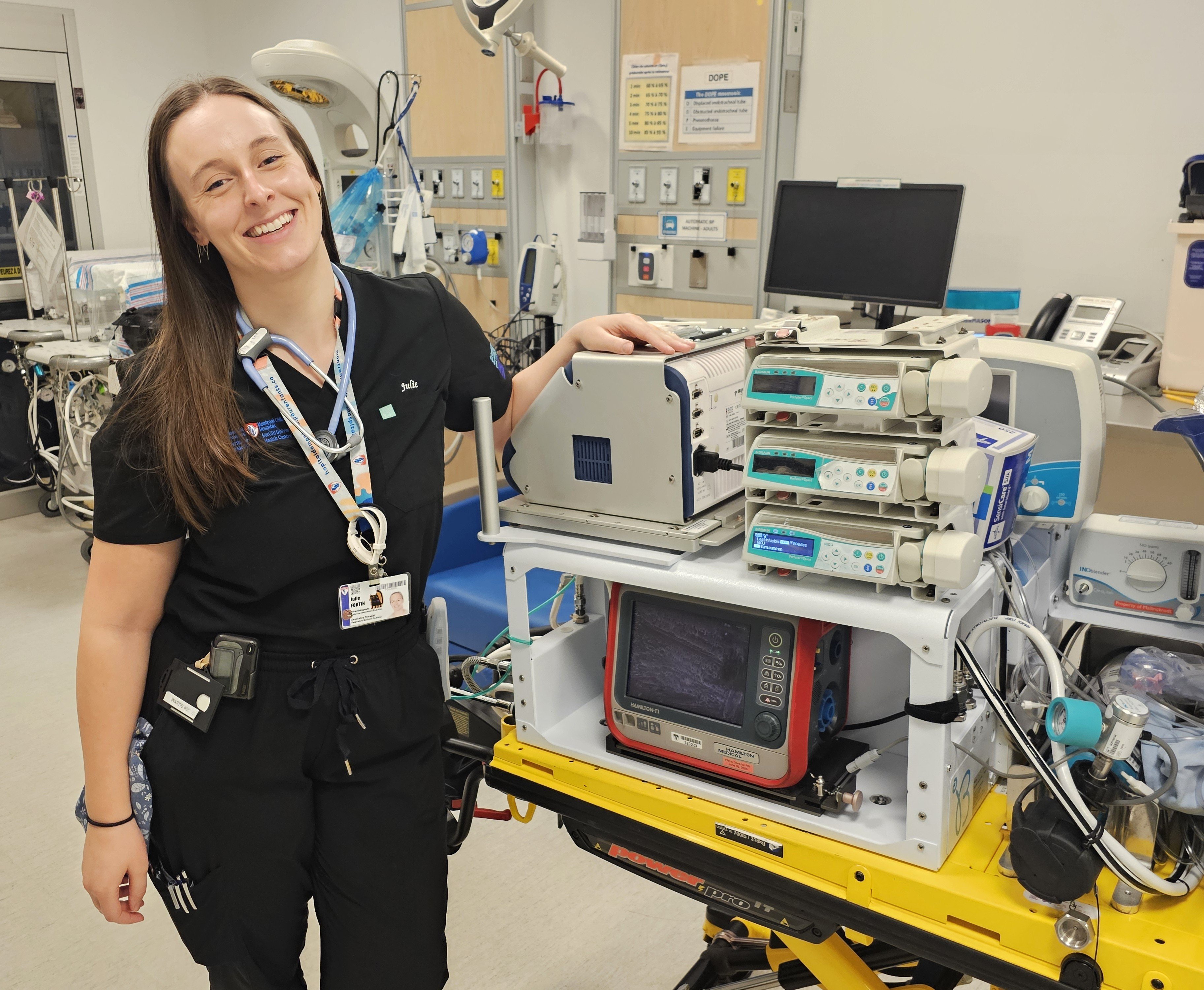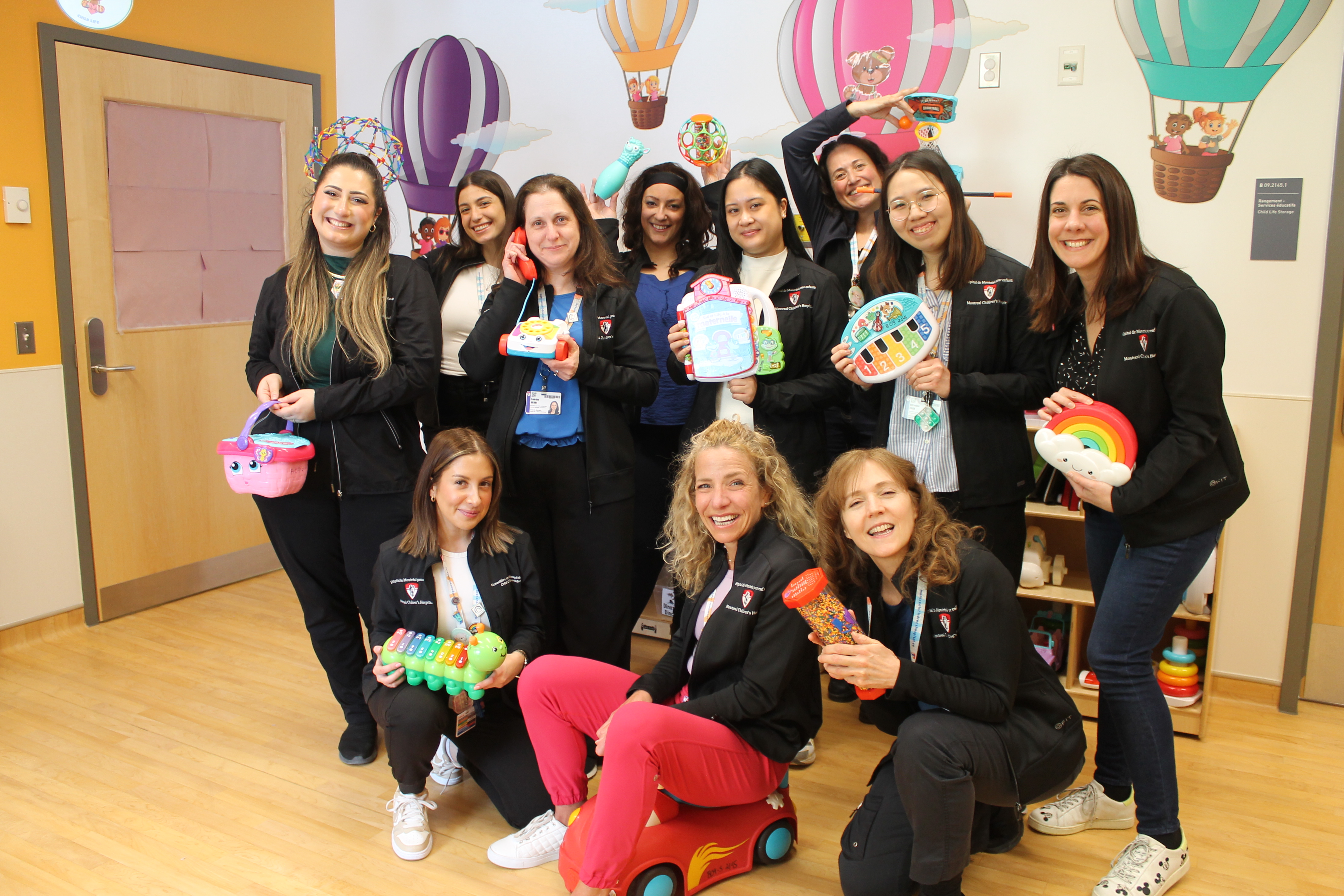
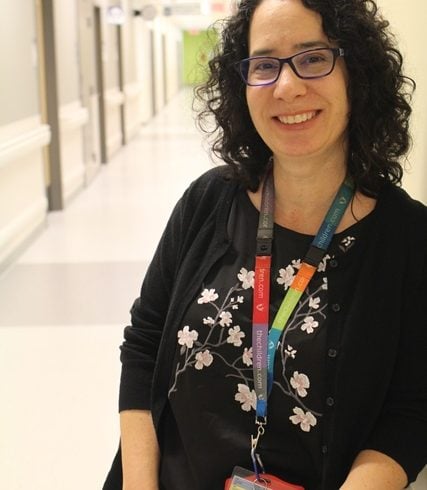
Social Work Month
14 March 2018
Clinical social workers help families cope with the stress of their child’s hospitalization, illness or injury. They counsel families, advocate for them, assess patient and family psychosocial needs, provide counseling, assist patients transition to home, and educate and link families to community and government resources. For Social Work Month, we shine a light on Marie Laberge and Laura Amer, dedicated social workers who find a genuine sense of satisfaction in helping the patients and families they work with.
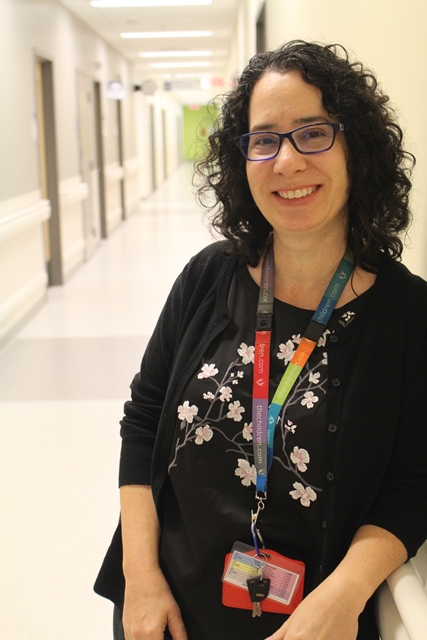 “Advocating for families is a significant part of social work in the NICU,” says Marie Laberge who has been a social worker for over 30 years and the last 20 at the Montreal Children’s Hospital (MCH). She works primarily in the Neonatal Intensive Care Unit (NICU) where parents are faced with what is often the most difficult and emotionally charged time of their lives, “We intervene at a time of crisis in the family’s life,” says Marie. Helping parents adapt to what is usually a long stay in the largest unit in the hospital is the crux of Marie’s work and of that of her two NICU social work colleagues. Services provided include instrumental assistance like lodging, support in applying for special government benefits, referral to community resources as well as providing for the family’s emotional needs through supportive counseling and crisis intervention. “We really care for the whole family,” says Marie, and adds, “Feeling like I can empower parents and be there for them at a critical time is extremely rewarding.”
“Advocating for families is a significant part of social work in the NICU,” says Marie Laberge who has been a social worker for over 30 years and the last 20 at the Montreal Children’s Hospital (MCH). She works primarily in the Neonatal Intensive Care Unit (NICU) where parents are faced with what is often the most difficult and emotionally charged time of their lives, “We intervene at a time of crisis in the family’s life,” says Marie. Helping parents adapt to what is usually a long stay in the largest unit in the hospital is the crux of Marie’s work and of that of her two NICU social work colleagues. Services provided include instrumental assistance like lodging, support in applying for special government benefits, referral to community resources as well as providing for the family’s emotional needs through supportive counseling and crisis intervention. “We really care for the whole family,” says Marie, and adds, “Feeling like I can empower parents and be there for them at a critical time is extremely rewarding.”
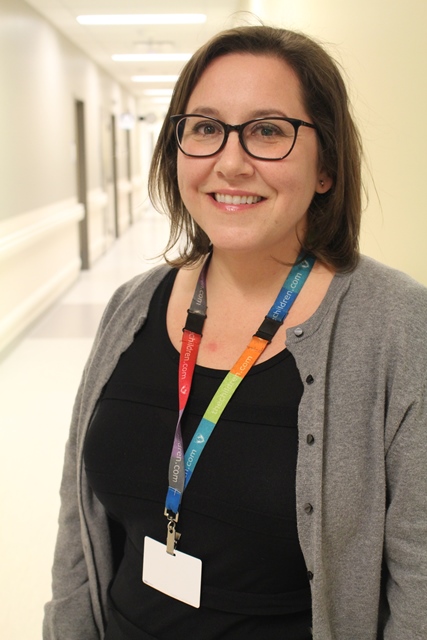 As a social worker in the outpatient psychiatry clinic at the Montreal Children’s Hospital (MCH), Laura Amer’s role is a therapeutic one. She works directly with a psychiatrist to evaluate the nature of the patient’s symptoms in order to devise a treatment plan. “In psychiatry cases, one of the roles of the social worker is to help patients feel comfortable enough to open up and talk about their pain so we can begin to understand it,” says Laura. Children and adolescents are referred to the outpatient psychiatry clinic either from the emergency department or by other healthcare professionals in the community “When we see patients who present with psychiatric problems in the emergency room, we have to evaluate as to whether or not they are a risk to themselves, and that is a huge responsibility” says Laura. When patients are considered to be an imminent risk to themselves, they are admitted to the psychiatric unit. Otherwise, they are discharged with a follow-up plan. The MCH outpatient psychiatry clinics treat the most complex and challenging cases. “The majority of our patients are referred to us after they have already undergone evaluations and therapy in the community without success, and when they get to us they can feel hopeless or like they will never get better” says Laura, and adds, “It is profoundly rewarding to see a child who came to us feeling such deep pain, eventually begin to feel better, and even smile.”
As a social worker in the outpatient psychiatry clinic at the Montreal Children’s Hospital (MCH), Laura Amer’s role is a therapeutic one. She works directly with a psychiatrist to evaluate the nature of the patient’s symptoms in order to devise a treatment plan. “In psychiatry cases, one of the roles of the social worker is to help patients feel comfortable enough to open up and talk about their pain so we can begin to understand it,” says Laura. Children and adolescents are referred to the outpatient psychiatry clinic either from the emergency department or by other healthcare professionals in the community “When we see patients who present with psychiatric problems in the emergency room, we have to evaluate as to whether or not they are a risk to themselves, and that is a huge responsibility” says Laura. When patients are considered to be an imminent risk to themselves, they are admitted to the psychiatric unit. Otherwise, they are discharged with a follow-up plan. The MCH outpatient psychiatry clinics treat the most complex and challenging cases. “The majority of our patients are referred to us after they have already undergone evaluations and therapy in the community without success, and when they get to us they can feel hopeless or like they will never get better” says Laura, and adds, “It is profoundly rewarding to see a child who came to us feeling such deep pain, eventually begin to feel better, and even smile.”

